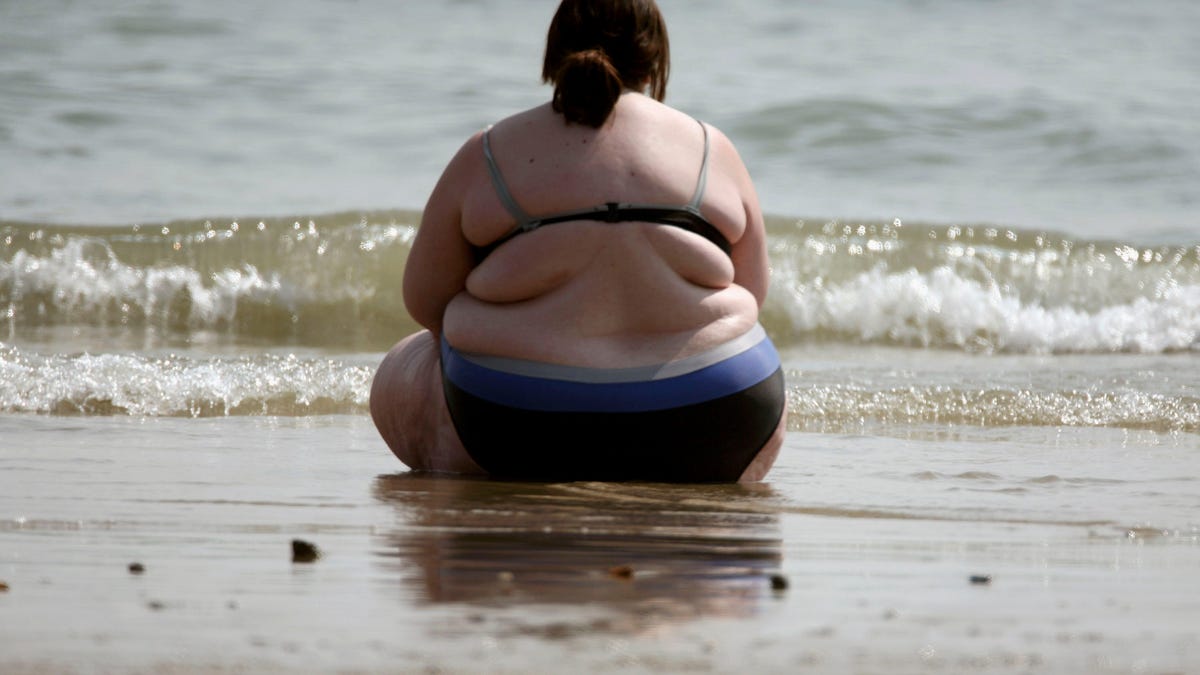
Three new studies say obesity rates across the world have doubled during the last three decades, even as blood pressure and cholesterol levels have dropped. (2007 Getty Images)
The heavier a woman is, the more trouble she may have getting pregnant and having a baby through in vitro fertilization, or IVF, suggests a large U.S. study.
Researchers found that women who were overweight or obese were less likely to become pregnant using fertility treatments than normal-weight women, and when they did get pregnant, they lost the baby more often.
The patterns were especially clear for women using their own (non-donor) eggs that hadn't been frozen.
The new findings bolster earlier studies, which have hinted at worse IVF outcomes in heavier women. They don't prove the extra pounds are directly responsible for the reproductive troubles these women experience, but experts say that's likely.
"We know that being overweight and obese is not good (for IVF), it's just how bad is it, and where are the bad effects?" said Dr. Brian Cooper, of Mid-Iowa Fertility in Clive, who wasn't involved in the new study.
To better get at that question, Barbara Luke of Michigan State University in East Lansing and colleagues drew data from a reporting system that includes more than 90 percent of IVF treatments done in the United States.
In total, they had information on 150,000 fertility treatment cycles done in 2007 and 2008 at 361 different clinics.
For each cycle, the reporting system included whether the cycle was canceled, if it led to a pregnancy, and whether that pregnancy ended early (a miscarriage or stillbirth) or the woman gave birth to a live baby. For most cycles, it also had data on women's height and weight before starting treatment.
From the beginning through the end of fertility treatment, heavy women saw poorer results.
About nine percent of cycles in normal-weight women were stopped early, compared to 16 percent of cycles in the heaviest women—those with a body mass index over 50 (equivalent to a 5 foot, 5 inch woman who weighs over 300 pounds.)
Normal-weight women had a 43-percent chance of getting pregnant during each cycle using their own, fresh eggs for IVF, compared to 36 percent for very heavy women. Rates for overweight and less obese women fell in between.
And for women who did get pregnant, the trend continued, with the heaviest about twice as likely as normal-weight women to lose the baby in many cases.
For overweight and obese women trying to get pregnant, "even a little bit of weight loss helps," said Dr. Howard McClamrock, an infertility specialist at the University of Maryland Medical Center in Baltimore.
However, "This is what we're constantly faced with: ideally she might like to lose weight, but she might not have that much time," added McClamrock, who was not involved in the new study.
He said research has been pointing more and more toward a link between extra weight and worse IVF outcomes. But, "the real reason behind it is unclear," McClamrock said.
One explanation, said Cooper, is that extra fat tissue releases estrogen, which fools the brain into thinking the ovaries are working when they really aren't, so it doesn't do its part to kick the ovaries into gear.
Luke and colleagues note in the journal Fertility and Sterility that thin and heavy women may have different causes of infertility.
For example, thin and normal-weight women in the study generally had higher rates of endometriosis, a condition in which cells from the lining of the womb grow on other organs, such as the ovaries. Polycystic ovary syndrome, where the ovaries become enlarged and contain several small cysts, was more common in very heavy women, however.
The researchers add that they did not have data on lifestyle factors that may affect IVF success, or on any characteristics of male partners, including how heavy they were.
Cooper, who was also not involved in the new study, said that weight still isn't as big an issue for fertility as age and whether or not a woman smokes.
The findings should tell women that "weight isn't everything, but it's an important factor that we have control over," he said. "Fix it now, because even a little bit (of weight loss) can make a big difference."
